- News
- Reviews
- Bikes
- Accessories
- Accessories - misc
- Computer mounts
- Bags
- Bar ends
- Bike bags & cases
- Bottle cages
- Bottles
- Cameras
- Car racks
- Child seats
- Computers
- Glasses
- GPS units
- Helmets
- Lights - front
- Lights - rear
- Lights - sets
- Locks
- Mirrors
- Mudguards
- Racks
- Pumps & CO2 inflators
- Puncture kits
- Reflectives
- Smart watches
- Stands and racks
- Trailers
- Clothing
- Components
- Bar tape & grips
- Bottom brackets
- Brake & gear cables
- Brake & STI levers
- Brake pads & spares
- Brakes
- Cassettes & freewheels
- Chains
- Chainsets & chainrings
- Derailleurs - front
- Derailleurs - rear
- Forks
- Gear levers & shifters
- Groupsets
- Handlebars & extensions
- Headsets
- Hubs
- Inner tubes
- Pedals
- Quick releases & skewers
- Saddles
- Seatposts
- Stems
- Wheels
- Tyres
- Health, fitness and nutrition
- Tools and workshop
- Miscellaneous
- Cross country mountain bikes
- Tubeless valves
- Buyers Guides
- Features
- Forum
- Recommends
- Podcast
Inside Hunt — The secrets behind its award-winning bike wheels

This article includes paid promotion on behalf of Hunt
Hunt was responsible for a record-breaking six out of ten wheelsets in our 2022/23 end-of-year awards, including our bargain buy and Editor's Choice awards. Now we've been given access to lift the lid on what goes into making an award-winning wheelset, myth-busting your comments and checking out the engineering behind the hoops.
When you’re looking to upgrade bike components, there’s one area that will arguably make a bigger difference than any other: it is, of course, your wheels.
We’ve reviewed hundreds of wheelsets here on road.cc over the years, some are good, some are not so good... but if one thing has become clear, it’s that it is not as easy as it seems to design and distribute industry-leading wheels at a sensible price. Especially when the sector is so competitive.
This is why we took a trip down to West Sussex, to Hunt's HQ no less, a brand that just can’t seem to keep its carbon and alloy wheels out of our end-of-year awards and buyer’s guides.
Why Hunt?
> The road.cc Recommends Wheels of the Year 2022/23
So why Hunt? There are after all plenty of bike wheel manufacturers. Just take our recent 2022/2023 awards, where we rounded up all our favourite wheels that we reviewed in 2022. There were ten spaces up for grabs and Hunt took more than half of them! Sweeping up our bargain buy and Editor’s choice awards in the process. Here's some of the comments from our independent reviews of those featured wheelsets:
-
Hunt 32 Aerodynamicist UD Carbon Spoke wheelset (£1,199): "Light, stiff and well priced – these fly up the climbs and are well worth the money"
-
Mason X Hunt 650b Adventure Sport Disc wheelset (£349.99): "Well-priced and very capable wheelset backed by great parts, warranty and service"
-
Hunt 36 Carbon Wide Aero wheelset - Winner of the road.cc Bargain Buy Award (£749): "One of the best bang-for-buck wheelsets you can get for your rim brake bike"
-
Hunt 54 Aerodynamicist Carbon Disc wheelset (£969): "Real-world performance gains while being light enough to be used as an all-rounder"
-
Hunt Race Aero Wide wheelset (£399): "Well built, stiff, and light. Carbon wheels look great and sound nice, but you can save yourself some cash by getting a great alloy wheelset instead."
- Hunt 44 Aerodynamicist Carbon Disc wheelset - Winner of the road.cc Editor’s choice Award (£879): "Fast, stable, easy to live with and a great price"
In the cycling industry this sort of dominance is all but unheard of; so, to find out how it’s possible when you’re going up against the likes of Roval, Zipp, and Enve to name just a few, as well as a whole host of less established 'Chinese' brands, we’re having a nosey around Hunt’s HQ and chatting to their staff in search of answers. Does Hunt really use off-the-shelf parts and/or open moulds? What does the in-house testing procedure consist of? We’ve been given access to lift the lid on what it takes to make an award-winning wheelset, and will also be having a chat with the engineers about what’s next.
The beginnings of Hunt
Hunt was founded in 2015 on the same industrial estate in Partridge Green as its headquarters sits today. The story began with four wheelsets, all of them alloy, and it wasn't long before road.cc got its first taste of Hunt's rim brake wheels (it was all the rage back then!) the Race Season Aero Wide wheelset. We liked them! Scoring the wheels 8/10, little did we know what would follow...
"Hunt Bike Wheels exists because the wheels we wanted to ride weren’t readily available, so we assembled a team of talented, passionate riders with a wealth of industry experience, and set out to bring you the latest, most practical, forward-thinking technology in all things round. Our mission is to serve devoted riders with the highest performing products, backed by best-in-class rider support."
Eight years after Pete Marchment, Hunt's Co-Founder, sent us that first set of wheels, we sat down for a chat with him to discuss Hunt's success.
Marchment explained that Hunt is still very much the company it was eight years ago, although on a much larger scale:
"The process still begins with the questions: "What is this wheelset going to be used for? What's the purpose of it? And then if that's [its] purpose, if that's the reason for it to exist, how do we then go through and look at all the different details of what goes into that? The rim, the spokes, the hubs, everything down to the nipples, down to the QR skewers, the bearings and every little part of that."
It is in fact this search for detail that is responsible for the Hunt name.
When Hunt was founded, the wheelset market was already evolving rapidly. Those first few disc brake wheelsets that had been brought out by other companies were often the most expensive. This was brand new technology, so was reserved for the most expensive, highest performing wheels and full-on racing hoops.
Marchment told us Hunt was "looking at it and going well, the biggest benefits of disc brakes, the pioneers of people who are going to really benefit using them are actually all season [riders] who want a fast-feeling road bike and don't want to be feeling like [they're], not on something that's performing really, really well.
"But obviously, you still want kit to be able to take all the abuse of a British winter."
How is Hunt different?
It's all well and good searching for ways to improve a wheel and spec the highest performing build for a set price; but there are plenty of brands out there all competing to produce the best wheels possible, I was keen to dive deeper into the reasons that Hunt thinks it's managed to stand out in such a competitive sector.
Marchment explained that in everything the brand is doing and in every decision that gets made, however big or small, it's all about making the best product for the rider.
"When we're thinking about whatever that spec decision is or, you know, whether we should put some money into a particular element of that, it's not about what the margin might look like at the end of it, or even what the RRP is going to be," he explains.
"It almost comes down to: "Would I put that on my wheel, if I'm making it for me?" Which is really what we are doing. Is it worth it, do I want that on my wheel?"
Is Hunt just a marketing company?
Under plenty of our Hunt wheel reviews (of which there are many), there are often comments claiming that Hunt wheels are just "rebadged off-the-shelf wheels with a new label".
This was definitely one of the easier myths to bust, as it didn't take too long walking around the Hunt HQ to see plenty of in-house engineering going on right here in the UK. Hunt was also refreshingly honest about the fact that yes, sometimes off-the-shelf components are indeed used.
Pete explains: "Hopefully, anyone who spent a little bit of time with us can probably see some of the work that we put into developing product, that's both in terms of the engineering side and in terms of how we bring that whole package [to market].
> Hunt Whitepaper: The science behind the Limitless 48 wheelset
"There's a big team of engineers that we employ full-time plus two product managers, one of whom is a mechanical engineer as well. So there's a good group of people.
"For the 48 [Limitless] wheel or the 42 Gravel Limitless wheel, it's a project which we run, start to finish. We CFD those profiles, we 3D-print the shapes, we take those to the wind tunnel and we refine that external shape.
"And then we work with a supplier. Most of those are in mainland Taiwan, or in China. And we work with them to then create that mould and then create a layup that creates the physical characteristics that we need within that shape. That's really what that process looks like from start to finish."
To protect the intellectual property and hard work that has gone into designing the rims, the Limitless mould, for example, is then closed to prevent other brands from copying. On other lower-end wheelsets though, Hunt may choose to leave the mould open, explaining that it costs tens of thousands to close it and how this, in some cases, brings zero benefits to the rider.
What goes into making the flagship Limitless range
The Limitless range is Hunt's flagship wheelset for both road and gravel, and it's aerodynamically optimised wheels like these that require the most CFD (Computational Fluid Dynamics) resources.
Paddy Brown, Lead Product and Commercial Manager for Hunt, explains: "The big thing with CFD is it lets us develop and iterate many more times and much more quickly. It would be impossible to test this many profiles in the wind tunnel, not to mention much more expensive."
In a separate room, a 3D printer was whirring away, producing the next rim profiles that we could perhaps see used on future Hunt wheels. 3D printing is another way in which Hunt has been able to reduce its design time, by rapidly producing prototype wheels that can then be tested in the wind tunnel to validate CFD results.
Above, you can see sections of the rim as they come out of the printer. The state-of-the-art Formlabs suite is something to behold, with a laser scanner turning the liquid resin into physical objects right in front of your very eyes. The support material can then be removed and the pieces of rim then slot together like a giant puzzle – five for the front wheel and six for the rear due to differences in the number of spokes.
The pieces are glued and built up using the specified hubs and spokes. Tyres can then be fitted and scanned to see how they behave on different rim profiles, for example. Oh yes, Hunt designs all of its wheels to be as aerodynamic and stable as possible with tyres on. What good is a bike wheel with no tyre after all!
Paddy Brown explained that the rapid prototyping technology allows Hunt to test several new profiles per week. Of course, these need validating in the wind tunnel. "For the most recent wheels, we did 45 iterations on the front profile, and then something similar again, for the rear," he says.
I noticed that quite a few of the wheel and tyre combos in the engineering lab were covered in little stick-on dots. Mechanical engineer Ollie Mant explained that these are tracking dots, which help a 3D scanner pick up where the object is in 3D space.
Mant explained that scanning in tyre profiles is extremely important for CFD analysis as "that is a large part of the aerodynamic profile that is having to go through the wind."
So is this the end for wind tunnels? Well, no. All the final Hunt Limitless profiles get taken to the wind tunnel, and this shows no signs of stopping soon. The wind tunnel is still seen as the gold standard of aero testing, so whilst CFD is suitable for ranking profiles it's not being used to try and get real-world results.
The Hunt engineers explained that this gives them real drag figures, which can then be compared against competitors to see how they stack up. It has to be said, Hunt is also very good at publishing their findings. I love analysing the charts when a new wheelset is released and the data appears honest.
So after all that design work, profile tweaking and wind tunnel validating, we end up with a finished product. Who knew so much work went into making it?
Does Hunt use off-the-shelf parts?
I was still keen to dig a bit deeper into which components of Hunt Wheels are using off-the-shelf parts. Marchment explained that if we take the Limitless wheels, for example, the rim is totally engineered from start to finish and the hub is made in partnership with the supplier.
He explained that this means Hunt develop the hub internals, which is common for even the biggest brands. Roval, for example, uses DT Swiss internals in its Rapide wheelsets.
Hunt has had a relationship with its hub supplier since it began some nine years ago. Marchment explained that this close relationship has meant that the brand has had plenty of input and that the current generation of hubs has been co-developed with them making tweaks and changes based on Hunt's recommendations.
Then there are other projects which can vary a lot more. For example, there are some aluminium rims where at one end, they might be doing a full FTA (Finite element analysis) where a computer is used to simulate the stresses on that wheel so that it has the right impact and fatigue strength that Hunt wants.
However, Marchment adds: "There are also projects where if the only purpose of creating that mould is to make it look different or to [enable] us to say that it's a closed mould product.
"Then, the purpose of what we're trying to do is actually make the best thing that we can. If all it does is to make something look different, then that's not what we see as the best way to spend the money; because that's spending the money for us as a business, not for the person who's actually going to ride that."
Serving the rider
So far we've talked a lot about serving the rider, and that obviously includes designing the best possible wheels to ride at the best possible price. However, Hunt is also very proud of its customer care, and thinks that this is a key area that sets it apart from the rest.
Marchment said that since Hunt's beginnings, a "big part of it [has been] how we look after someone on the whole journey.
"From even before [the customer has] bought the wheels, we work with them to help them understand what they want and what's the right wheelset for them, all the way to getting [the wheels] through their door and then the service that comes with that and being looked after the whole time you own that wheel."
We also spoke to Simon McNamara of Customer Service to find out what kind of questions the brand might get asked day-to-day, and how the UK and US-based teams can actually assist.
He said, "We have the mantra here to serve the rider, and ultimately we want to make them happy.
"We want [riders] to have the best product, and the right product for their needs and for their kind of discipline. Hopefully, we can help advise with that and then if they do have an issue, we can help put it right as well."
Of course, a lot of the queries that the customer service department deals with via email, live chat and phone are from current customers. McNamara gave the example of riders who purchase new frames with different axle standards still wishing to use their Hunt wheels. He explained that they can assist with finding the correct axle adapters "which 99 times out of 100" will get sent out free of charge as a goodwill gesture.
Hunt also offers a 60-day ride and return service so that "customers can try the wheels, ride them, race them and basically do whatever they like with them for 60 days."
McNamara explains, "If you want to have a deeper section or on the mountain bike side, you might want a slightly wider rim or whatever it might be. We can sort the wheels for the [rider] and we do that effectively at no cost to the rider.
"We want them to be on brand and I think it's pretty cool that we do arrange everything for them, [i.e] getting their existing wheel set collected, and we will ship out a replacement set of wheels."
Hunt also has a team of full-time UK-based dedicated wheel builders who can perform everything, from warranty, through to supported athlete custom builds. Whether you're claiming under the wheel's standard three-year warranty, or if your wheel has H-Care, Hunt is well aware that 'things' happen!
"People right into sharp things, heavy things and have accidents. So we just need to make sure that we're in a position where we can get people sorted out and get them back on the road as quickly as possible."
A big part of being able to keep a wheel running is of course being able to service it. McNamara claims that there are quite a few Hunt wheels out there that have done 60-70,000 miles where people have changed a rim, hub internals and spokes as they've needed to.
A wander around the parts department reveals an eyewatering quantity of spare parts including spokes, bearings, rims and hub components for just about every wheel Hunt has ever made, all right here in the UK, ready to be sent out.
Ollie Gray, Road/Gravel Brand Manager, says: "You've got to be going some before a wheel is beyond economical repair, you'd probably have to snap every spoke, snap the rim and somehow crack the hub shell all in the same accident! So really, everything is repairable and we will always try to repair rather than replace.
"It's just about being really flexible and adaptable and we've got people to do that. For us in the business we're all riders, all people who understand what it's like to not have your bike available. And that's the biggest, most important thing that helps when the person who's helping you solve whatever problem understands why it matters. Because if you can get it back in time for the weekend when you're wanting to go for a ride that makes a massive difference."
So there we go. Wheels made for riders by riders, with far less marketing and far more engineering than many sceptics would have you believe.
You can check out our full independent opinions of nearly all the wheels featured in this article over in the reviews section; or if you want to see how the carbon spoke UD 60 Limitless or 50 Carbon Aero Disc wheelsets got on in our independent real-world speed testing, then follow this link.
Jamie has been riding bikes since a tender age but really caught the bug for racing and reviewing whilst studying towards a master's in Mechanical engineering at Swansea University. Having graduated, he decided he really quite liked working with bikes and is now a full-time addition to the road.cc team. When not writing about tech news or working on the Youtube channel, you can still find him racing local crits trying to cling on to his cat 2 licence...and missing every break going...
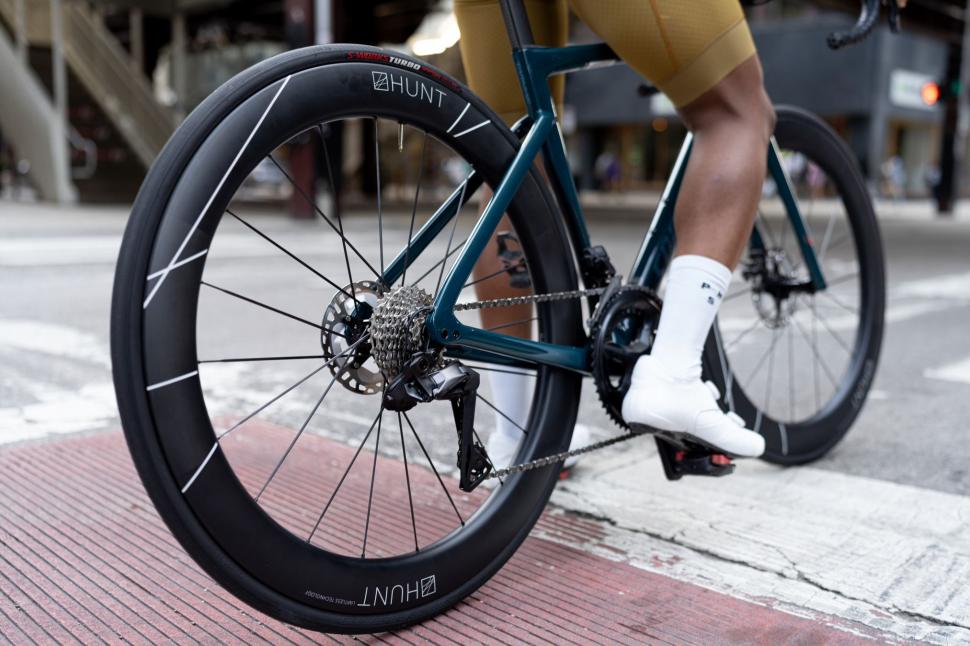
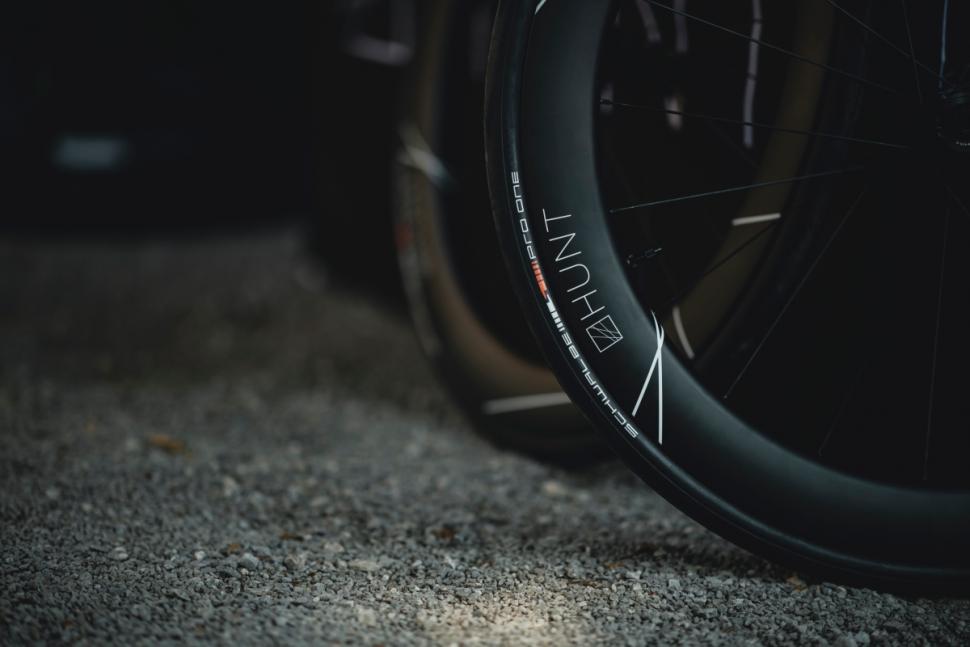
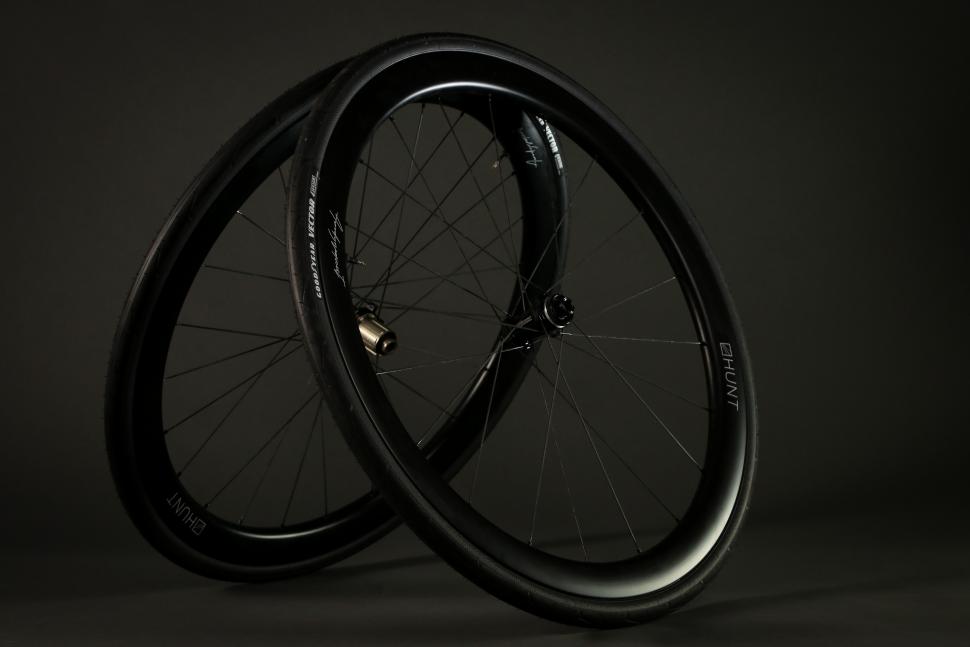
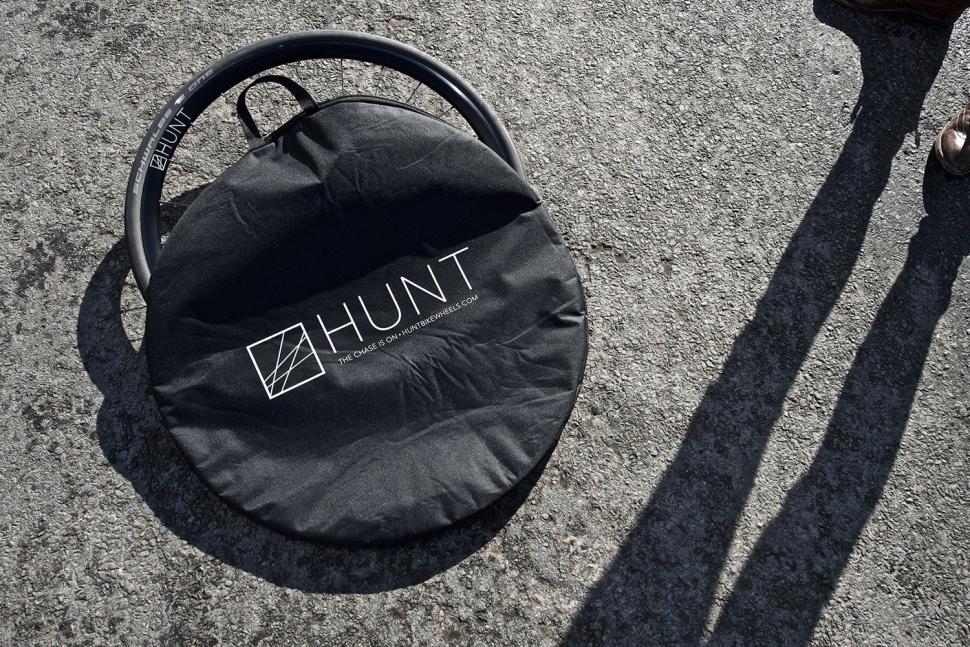
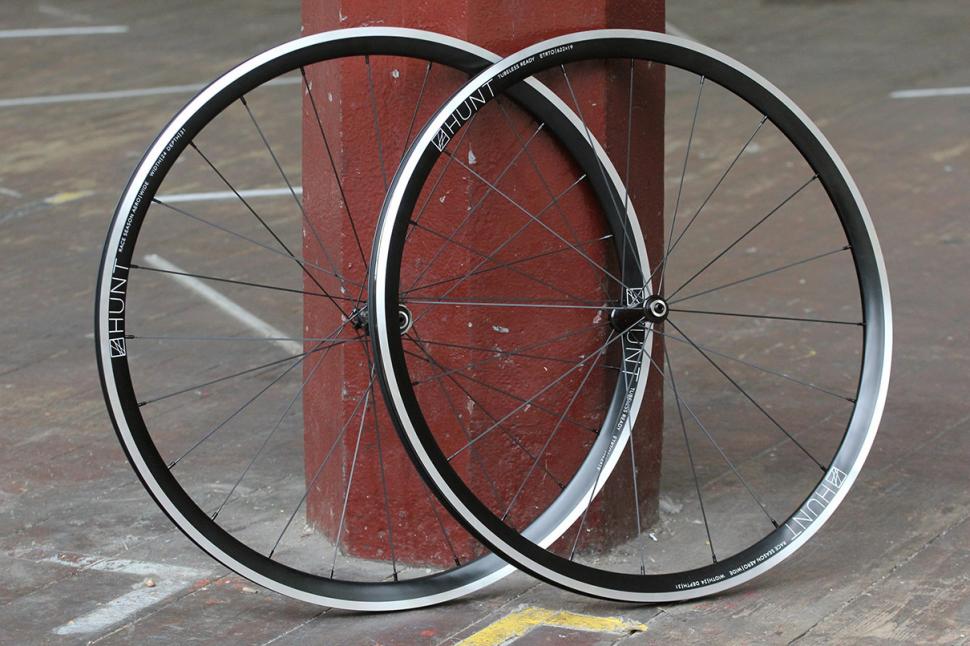
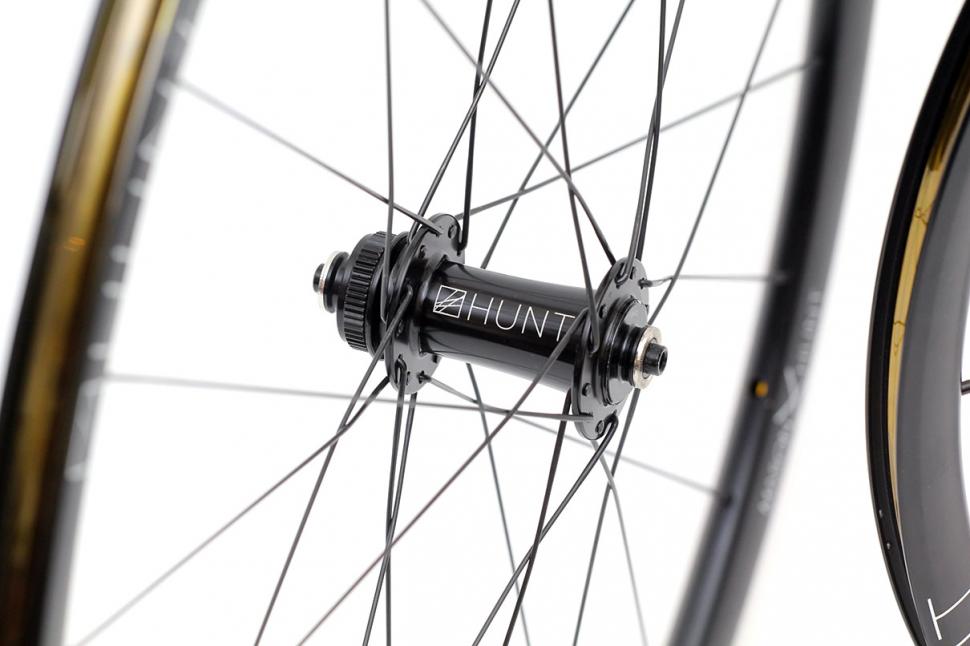
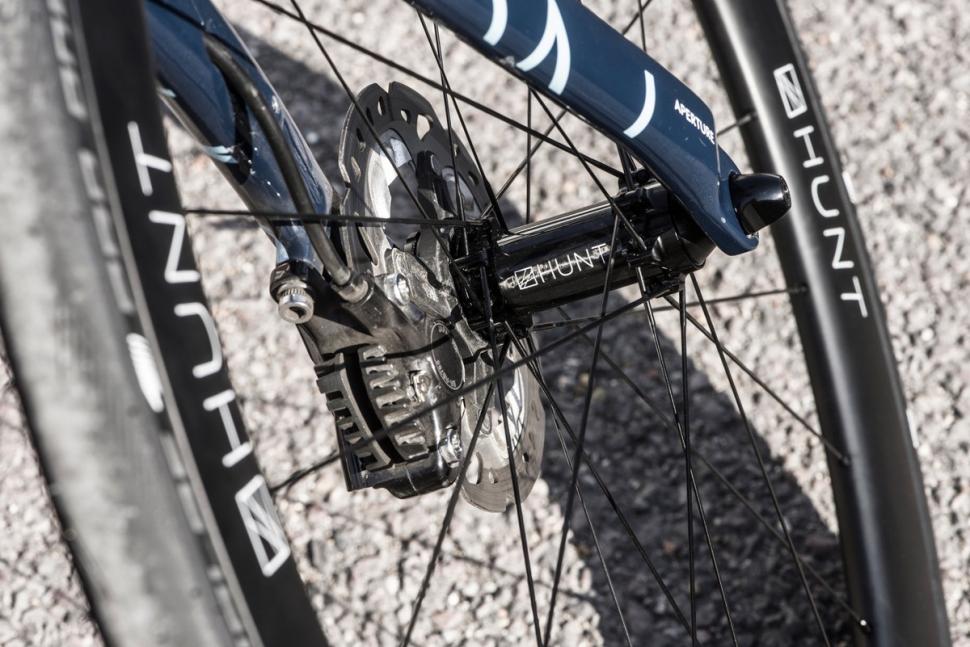
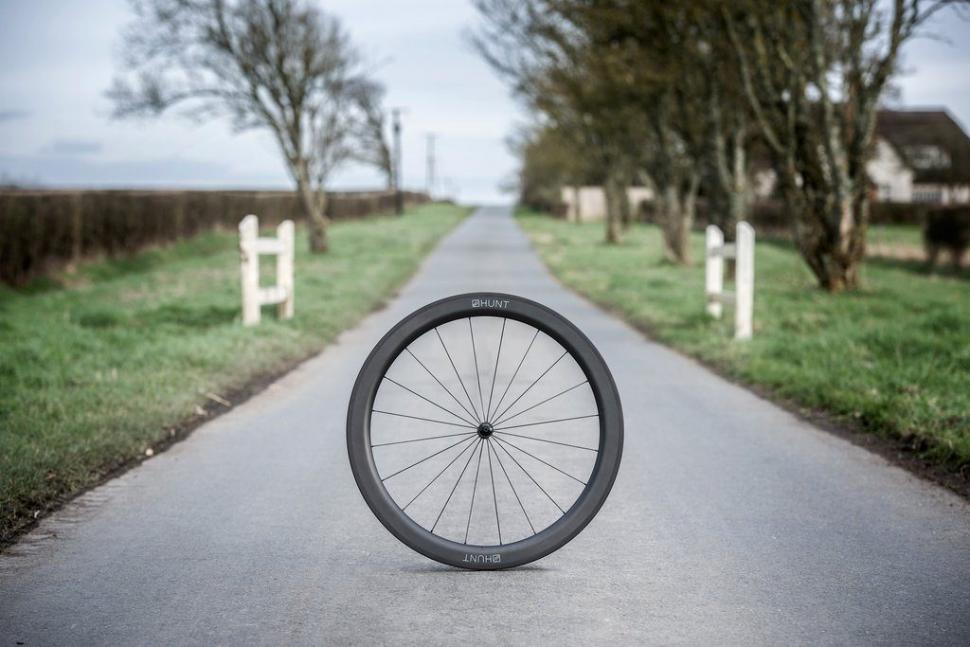
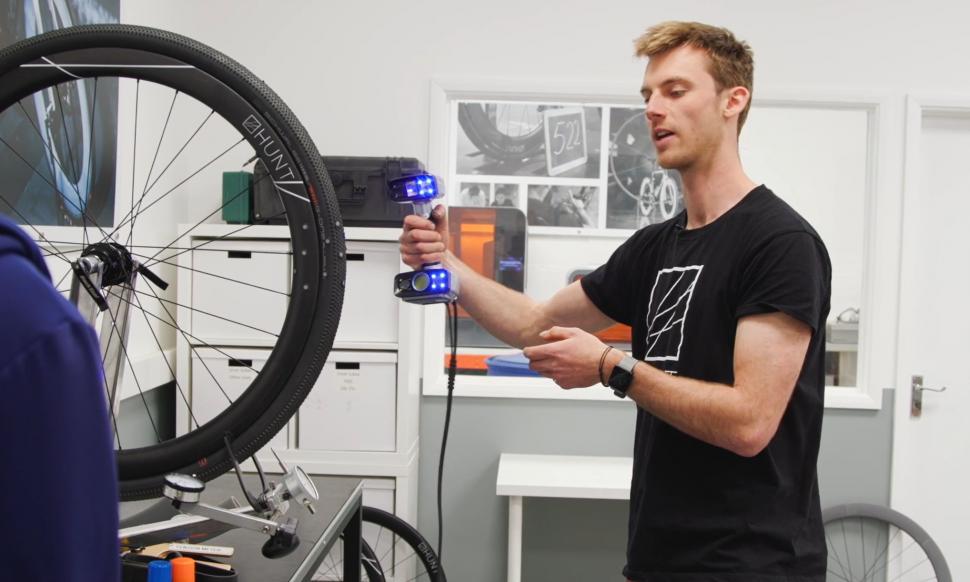

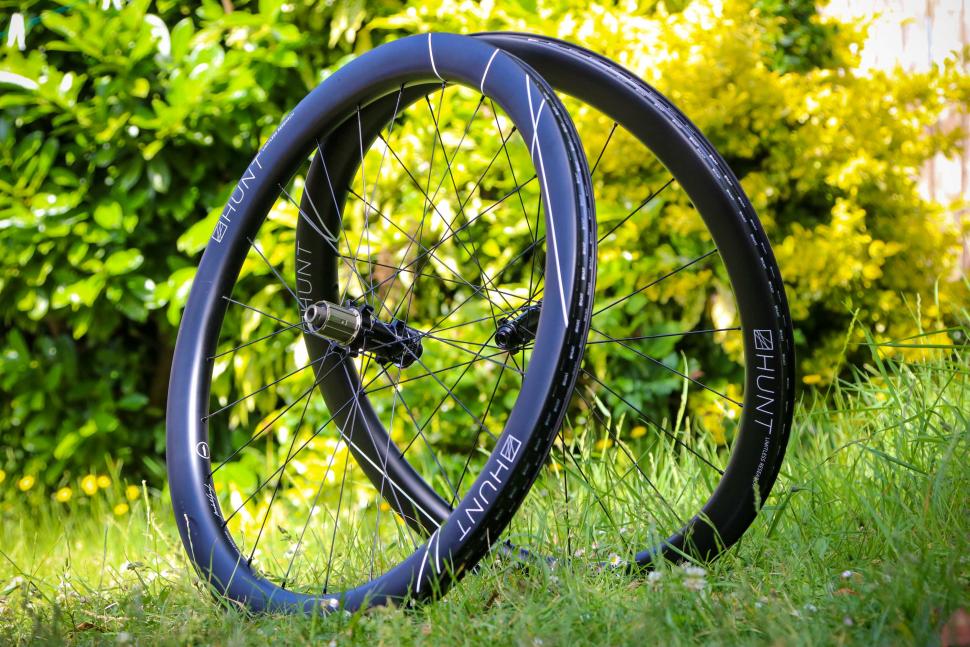
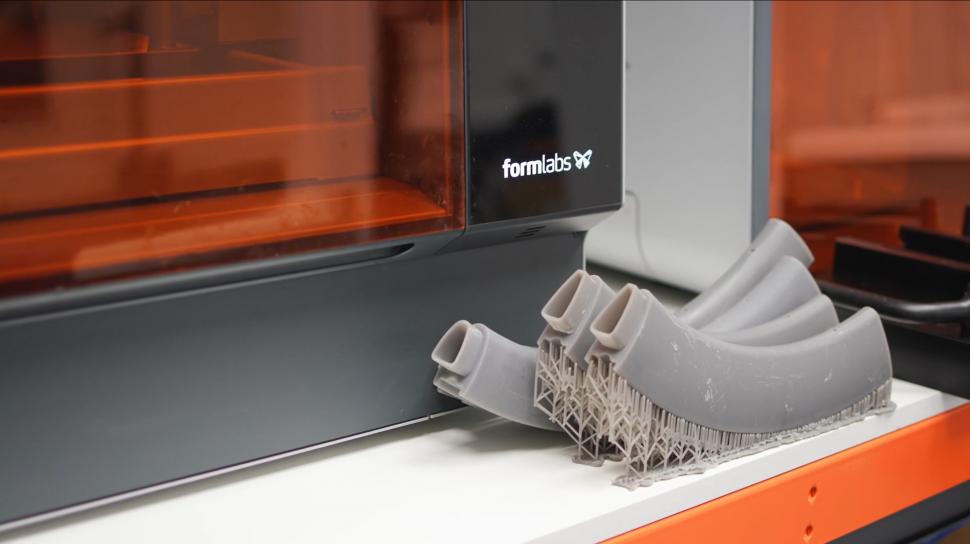
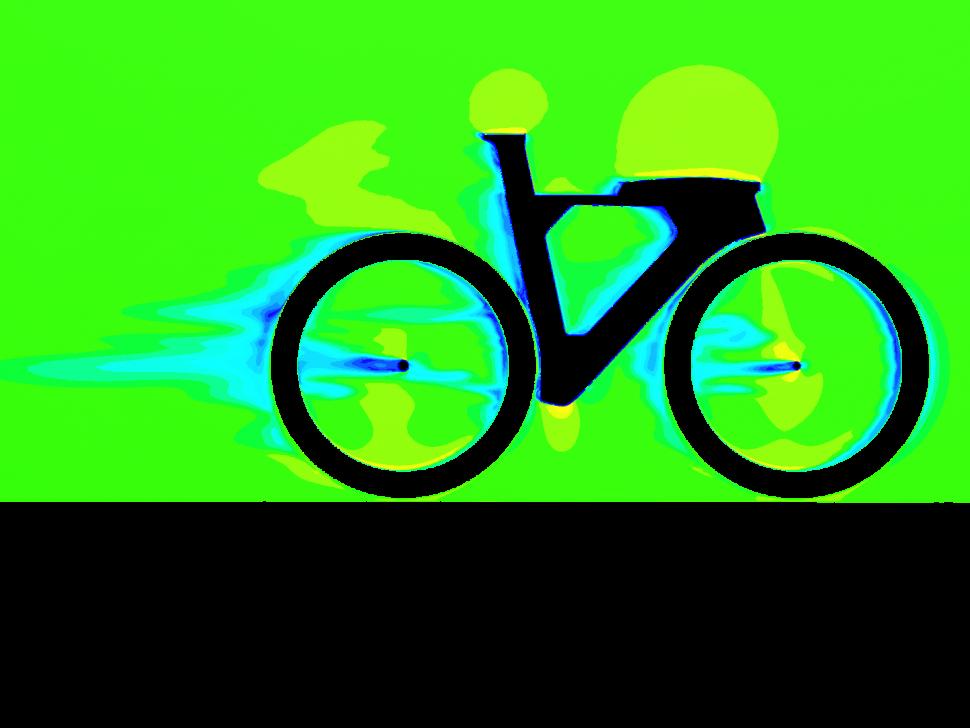
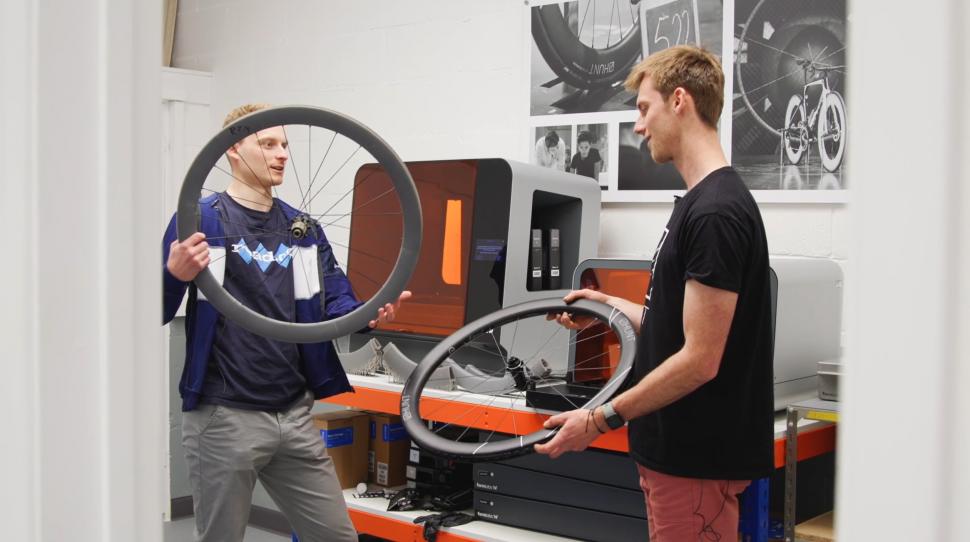

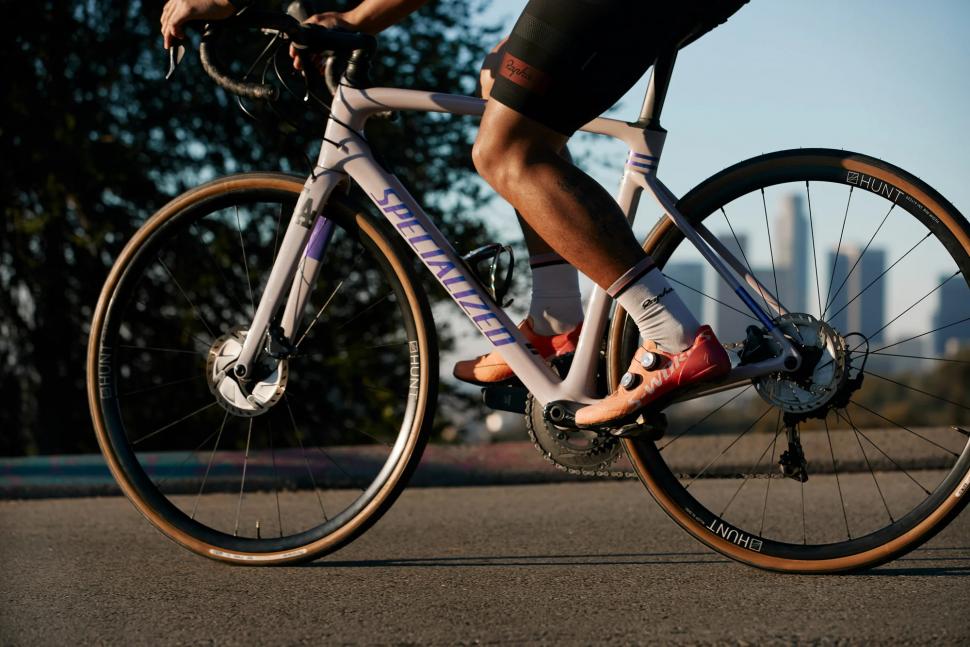
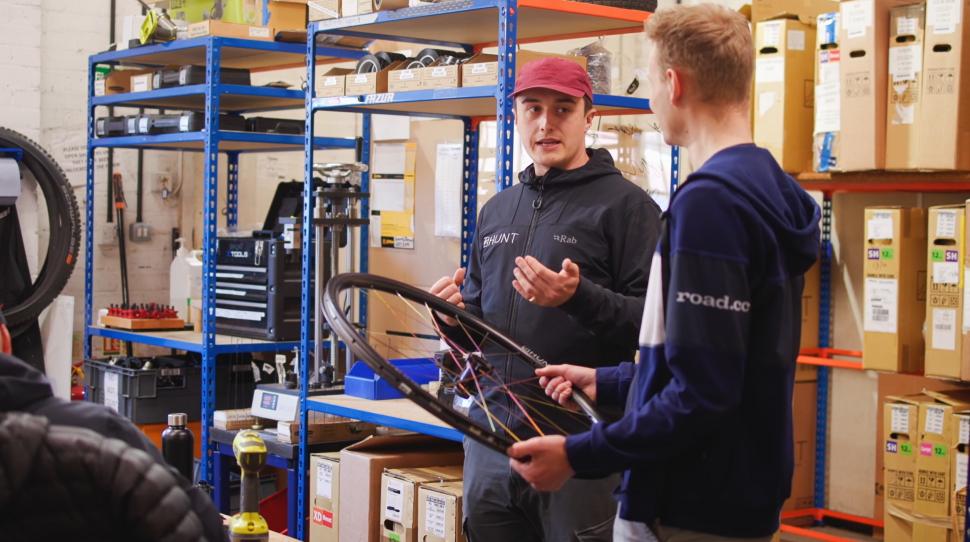
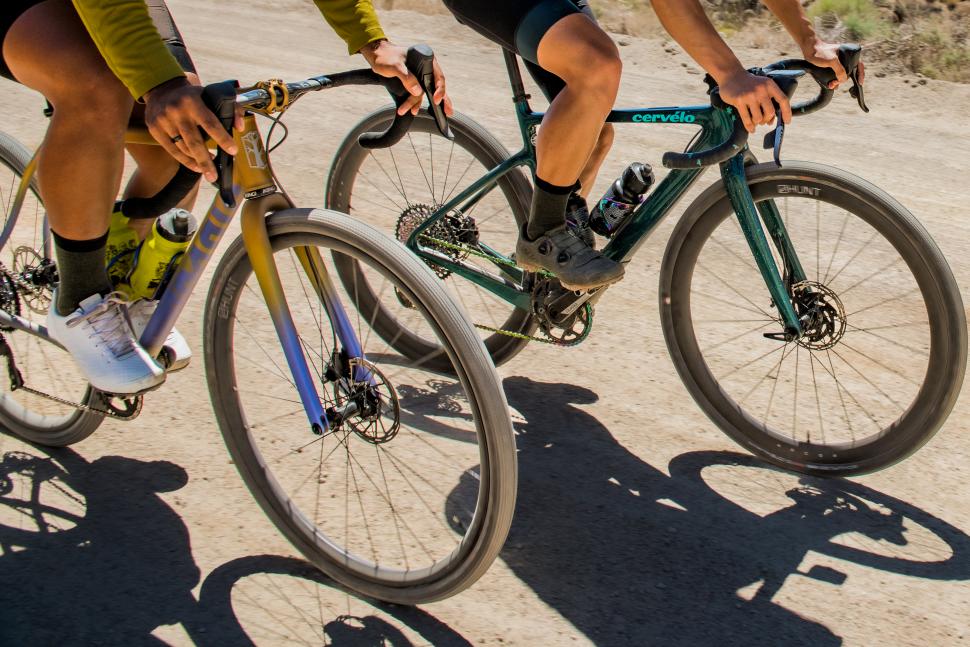
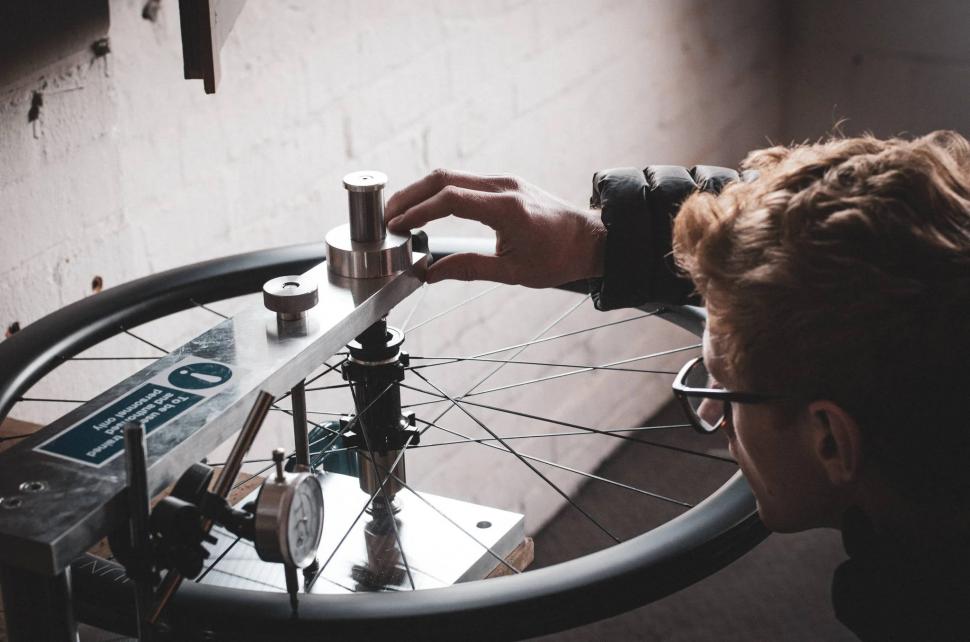
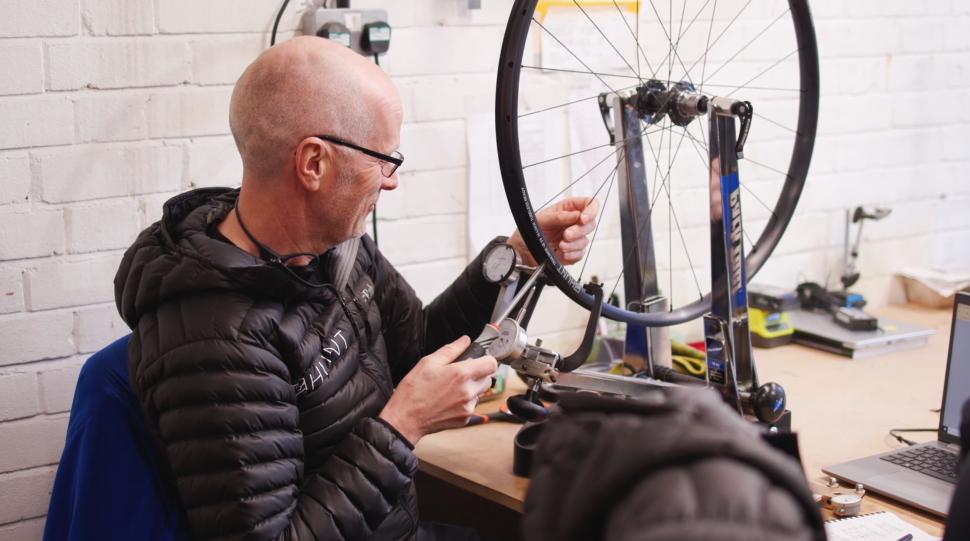
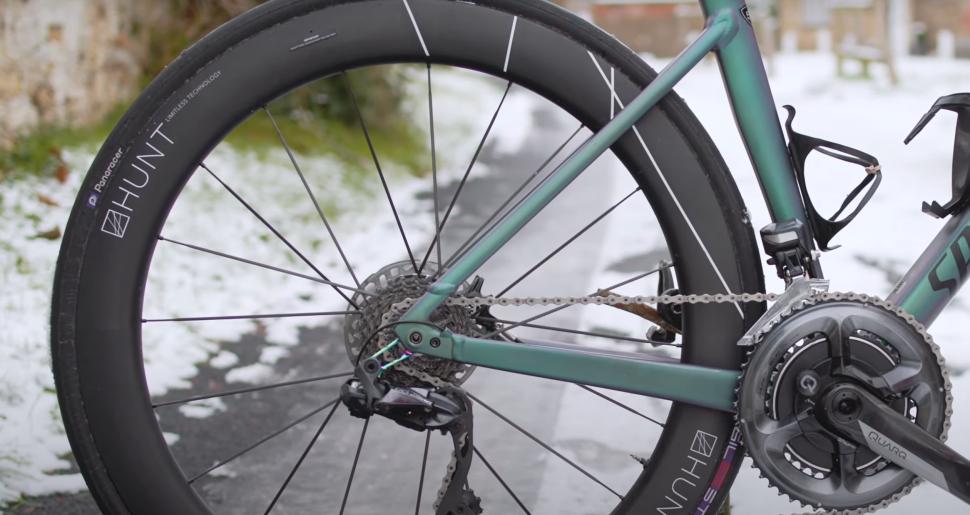
I agree, very little improvement indeed. From the first paragraph:...
Well yes they could but much as we would love it that would set an unworkable precedent whereby huge numbers of sports would have to go on the...
I'd like to see a monarchist try to defend the crown estate charging £100k+ to a likely financially struggling council. Hmm, maybe actually I...
What is it with brakes nowadays - nice and tight they catch on the wheel, loosen them slightly and hardly work. Are hub brakes better?
I had to look this one up: https://savingplaces.org/stories/a-tale-of-two-planners-jane-jacobs-and-...
What wokery is this? I thought those tech-bros were there to save us from the "mind virus"?
Opposition to controversial East Bristol Liveable Neighbourhood ‘will filter away’ say council bosses...
I know it's not the same, but they are saying Quest will have free highlights.
Yeah but if you take away any chance of getting their licence back they'll turn into some kind of amoral road-bandit! * checks court records again ...
As far as I can see, the only place anything like that number appears in the source story is in the video, near the end, when they're chatting...